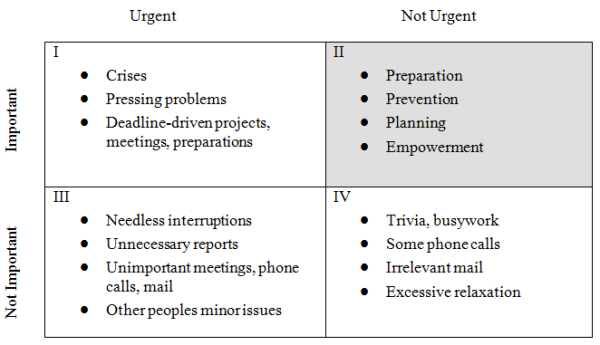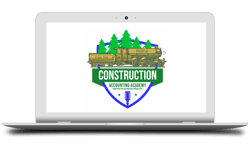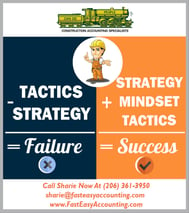
Let's explore why we get stuck on even the most minuscule duties and how that might hold us back.
Understanding the psychology behind procrastination
Procrastination plagues many people. It's a common problem that often leaves people feeling frustrated with themselves. But what if we could understand the psychology behind procrastination and use that knowledge to overcome it? At its core, procrastination is linked to negative emotions like stress, anxiety, and fear of failure. By avoiding or delaying a task, we temporarily alleviate these unpleasant feelings.
However, this relief is short-lived and ultimately only creates more stress. By being aware of this pattern and learning how to manage negative emotions, we can break free from the cycle of procrastination and become more productive.
Breaking down the task into small, manageable parts
When faced with a daunting task, it can feel overwhelming even to know where to start. However, the key is often found in breaking down the task into small, manageable parts. By dividing larger projects into smaller, more achievable tasks, we can focus our attention and energy on one step at a time, leading to a greater sense of progress and accomplishment.
Whether working on an estimate on a project or a personal goal, taking a moment to map out the necessary steps and tackle them individually can make all the difference in achieving success. So next time you're feeling stuck, take a breath and ask yourself: what's the next small step I can take?
Using rewards as incentives to get started
Sometimes, all it takes is a bit of extra motivation to get things done. That's where rewards can come in handy as an incentive to get started. Whether it's a tasty treat, a fun activity, or even some well-deserved relaxation time, a reward can give you that extra push to begin tackling a task.
Studies have shown that implementing a reward system can increase productivity and help you achieve your goals faster. So why not give it a try? Choose a reward that suits you and your task at hand, and see how much more motivated you feel to get started.
Finding out what your specific procrastination triggers are
Have you ever found yourself staring blankly at your to-do list, unable to muster the motivation to tackle any tasks? Identifying your procrastination triggers can be the key to overcoming it. Maybe certain types of tasks are more daunting to you, or you get easily distracted by social media or other forms of entertainment. Whatever it may be, pinpointing your personal procrastination triggers can help you create a strategy to combat them and finally get back on track.
Developing a plan and timeline for success
Success isn't something that happens overnight. It requires careful planning and a well-thought-out timeline. Whether it's starting a business or working towards a personal goal, having a plan in place is essential.
The first step in creating a successful strategy is to define your goals and establish the time frame you want to achieve them. It's crucial to take the time to map out the smaller steps needed to reach your ultimate objective and assign realistic deadlines to each of them. Along the way, it's also essential to evaluate your progress regularly and make necessary adjustments to your timeline or plan. With a clear strategy and timeline in place, success is within reach.
Planning to avoid distractions or delays
In our fast-paced world, distractions seem to lurk at every corner. The constant buzz of notifications, the temptation to check social media, and the never-ending stream of emails can quickly derail our day. The solution? Planning to avoid these distractions and any potential delays. By setting clear goals, creating a schedule, and arranging your workspace in a way that helps you focus, you can reduce the distractions that come your way and stay on track toward achieving your objectives. With some forethought and discipline, you can turn your day from one filled with distractions and delays to one of focused productivity.
Letting go of perfectionism and allowing yourself to make mistakes
Perfectionism is a trait that can drive people to do their best, but it can also become an obstacle to personal growth. The constant pressure to achieve flawlessness can lead to fear of failure and deflection, ultimately limiting your potential. Accept that mistakes are a natural part of the learning process, and they give us experience and insight that we wouldn't get otherwise. Embracing imperfection requires a shift in mindset, but by acknowledging our flaws and being willing to make mistakes, we can move forward with confidence and creativity.
How can this improve your Leadership Skills?
Construction Companies have two basic leadership styles: wait until an urgent situation occurs and react like a firefighter or develop business processes that allow the company to respond calmly and direct resources and solutions to the issues like a traffic police officer on a sunny afternoon.
Firefighter Leaders - Operate in one of three mental states:
- Going into a crisis
- Coming out of crises
- Waiting for a crisis
Traffic Director - Leaders operate in one of four mental states:
- Preparing for new projects to appear
- Preventing projects from becoming an emergency
- Planning for implementation of current and future projects
- Empowering others and directing the flow of projects to completion and billing
The Graph Below - Is similar to the diagram shown in The 7 Habits of Highly Effective People Habit 3: Put First Things First, by Stephen R. Covey, to demonstrate this principle.

As illustrated in the Time Management Matrix above, we spend our time in one of four ways. This matrix defines activities as Urgent / Not Urgent / Important / Not Important.
In conclusion
Ultimately, it is essential to remember that there is no one-size-fits-all approach to overcoming procrastination. People are inherently different and have different needs and motivations regarding goal setting and habit formation. The key is to be patient with yourself and accept that change takes time.
By determining which tasks are the most important to you and your construction business and scheduling your day based on those criteria, you can ease the pressure caused when you have a long list of activities to take care of. If bookkeeping is on your list, call me and let me know how I can help.
PS
About The Author:
![]() Sharie DeHart, QPA, co-founded Business Consulting And Accounting in Lynnwood, Washington. She is the leading expert in managing outsourced construction bookkeeping and accounting services companies and cash management accounting for small construction companies across the USA. She encourages Contractors and Construction Company Owners to stay current on their tax obligations and offers insights on managing the remaining cash flow to operate and grow their construction company sales and profits so they can put more money in the bank. Call 1-800-361-1770 or sharie@fasteasyaccounting.com
Sharie DeHart, QPA, co-founded Business Consulting And Accounting in Lynnwood, Washington. She is the leading expert in managing outsourced construction bookkeeping and accounting services companies and cash management accounting for small construction companies across the USA. She encourages Contractors and Construction Company Owners to stay current on their tax obligations and offers insights on managing the remaining cash flow to operate and grow their construction company sales and profits so they can put more money in the bank. Call 1-800-361-1770 or sharie@fasteasyaccounting.com
OUTSOURCED ACCOUNTING FOR
THE BUSY CONTRACTOR
IN A MOBILE ENVIRONMENT
 |
 |
 |
 |
Download the Contractors APP today from the App Store or Android Store
Access Code: FEAHEROS
Click here to download the App on Android:
Click here to download the App on iOS:
Simply scan the QR code or search for ‘MyAccountants’ in the App Store and enter the Access code: FEAHEROS to utilize the powerful App features and capabilities and benefit from having our Construction Accounting App at your fingertips, 24/7."
PS: Even if you are not a Construction Contractor, you will find plenty of benefits in the app, so we invite you to download it too! It's Free so why not?





























